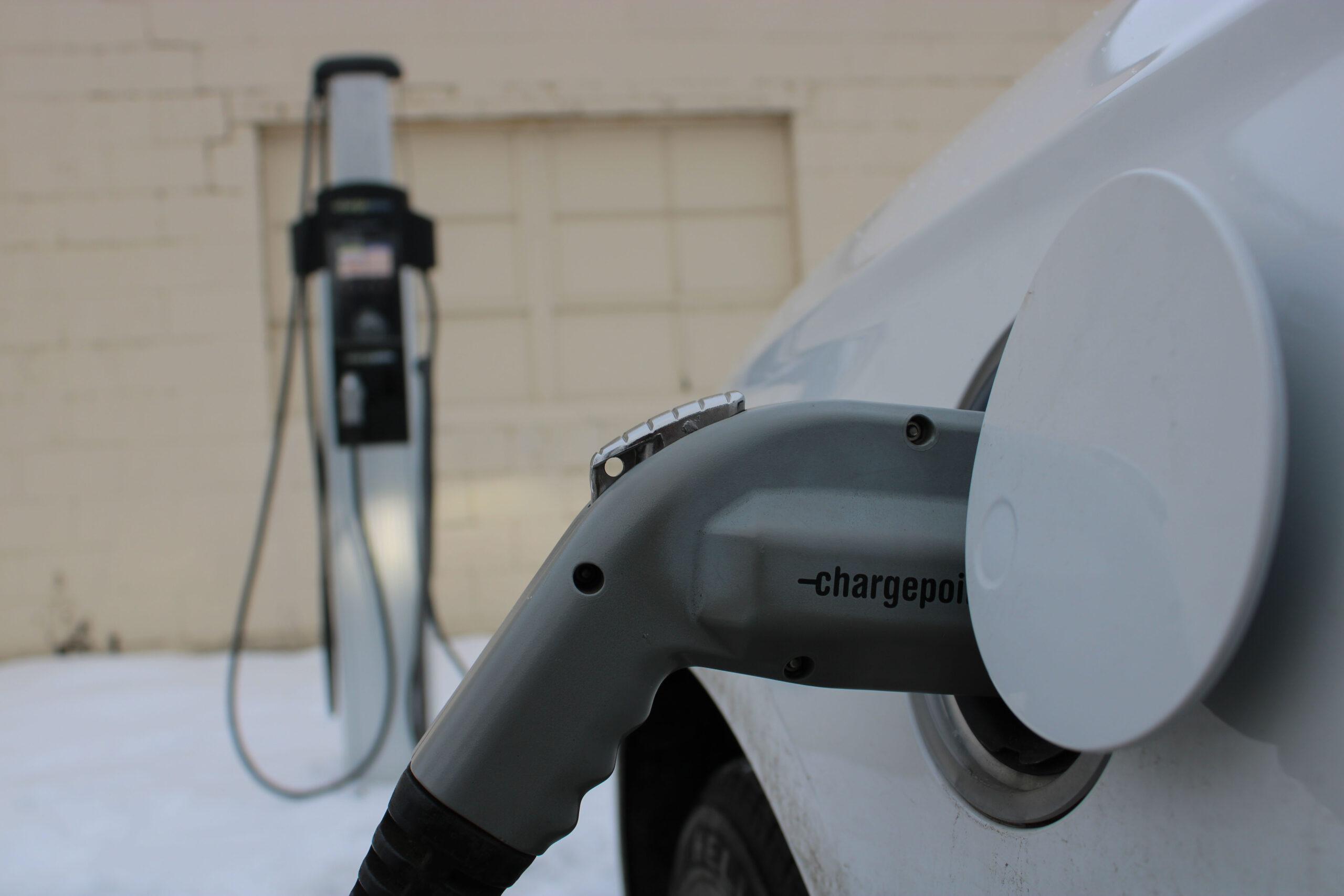Goshen College offers two charging ports for electric vehicles on campus. Since their installation, they have been free to use — until early this year, when GC began to charge EV drivers a fee for using the stations.
The decision was made following a meeting between GC representatives and officials from the city of Goshen, including engineers, legal staff and accountants. The purpose of the meeting was to maintain consistency between GC’s policies and those of the city itself, as the city recently began implementing a fee for all existing and future charges in the Goshen area.The question of whether or not to implement the fee for EV chargers on campus was fairly simple in itself. Since its inception, the school’s plan was to eventually charge users for the electricity. A 2015 statement released by GC’s Communications and Marketing department when the chargers were installed said that “at some point users will be charged a fee.”
For Brian Mast, director of facilities at GC, it was a toss-up. “Do you charge by the energy supplied (kWh) or the time the station is used? If you charge for the energy, it might mean that a car with a lot of storage might monopolize the charger for many hours making it not available to other people.”
On the other hand, if the school was to charge by time, it might not be fair to the drivers of some vehicles, as certain EVs charge faster than others.
In the end, the final decision was to charge based on time, but to increase the fee after four hours. The EV charger has a current rate of $1/hour for the first four hours and then $5/hour after that.
“It allows someone passing through town the opportunity to get down the road 50 or 60 miles, without tying up the charger all day. Someone working nearby could charge for half a day and then move it,” Mast said.
For the college, “this allows an employee or community member to travel to campus/work and charge enough to get back home. For students, it allows them to travel to work and recharge when they are home,” Mast said.
The implementation of the charging fee will keep GC in line with other charging stations in the area, help cover the costs of providing the service on campus and discourage people from tying up the charging stations for too long.
In addition, with two ports at GC, the premium is higher, which has influenced the decision as well.
“Hopefully, we can add more ports in different locations in the future,” Mast said.
Meanwhile, for students that want to charge their EVs for free, the Goshen Public Library still offers charging stations at no cost, although it remains unclear if and when the library will institute a fee.



